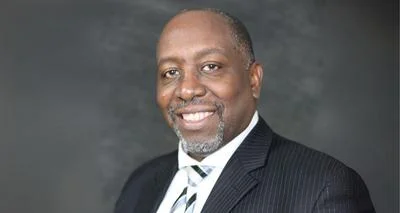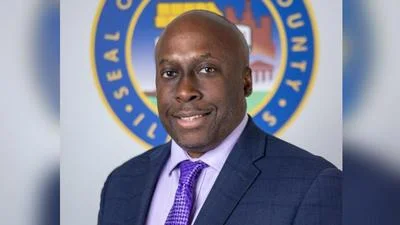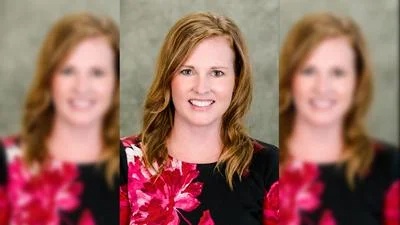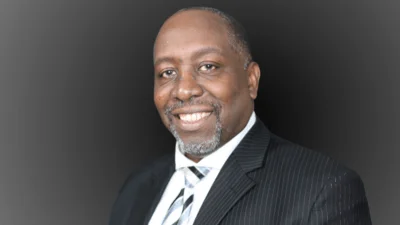William Davis, State Representative for 30th District | https://www.facebook.com/STATEREPRESENTATIVEWILLIAMDAVIS/
William Davis, State Representative for 30th District | https://www.facebook.com/STATEREPRESENTATIVEWILLIAMDAVIS/
According to the Illinois General Assembly site, the legislature summarized the bill's official text as follows: "Amends the Property Tax Code. Provides that, in counties with 3,000,000 or more inhabitants, taxpayers of income-producing property shall submit income and expense data annually to the chief county assessment officer on or before July 1 of each year. Provides that, in counties of fewer than 3,000,000 inhabitants, the county board may provide by ordinance or resolution that taxpayers of income-producing property shall submit income and expense data annually to the chief county assessment officer on or before March 31 of each year. Contains certain exceptions. Effective immediately."
The following is our breakdown, based on the actual bill text, and may include interpretation to clarify its provisions.
In essence, this bill amends the Property Tax Code in Illinois, mandating that taxpayers of income-producing properties in counties with 3 million or more inhabitants submit annual income and expense data by July 1 each year to the chief county assessment officer. In counties with fewer than 3 million inhabitants, county boards may require this data by March 31 through an ordinance or resolution. The bill outlines definitions for "income," "expenses," "income-producing property," among others, and establishes procedures for submission, potential penalties for non-compliance, and protections against data disclosure. A penalty of 0.025% of the prior year’s market value, up to a maximum of $10,000, is levied for failure to submit, contestable through administrative and court review. The bill also requires the chief county assessment officer to develop rules for data submission and to compile anonymized data for public release without identifying individual properties. This Act takes effect immediately upon becoming law.
William "Will" Davis has proposed another five bills since the beginning of the 104th session.
Davis graduated from Southern Illinois University in 1989 with a BA.
William "Will" Davis is currently serving in the Illinois State House, representing the state's 30th House District. He replaced previous state representative Harold Murphy in 2003.
Bills in Illinois follow a multi-step legislative process, beginning with introduction in either the House or Senate, followed by committee review, floor debates, and votes in both chambers before reaching the governor for approval or veto. The General Assembly operates on a biennial schedule, and while typically thousands of bills are introduced each session, only a fraction successfully pass through the process to become law.
You can read more about bills and other measures here.
| Bill Number | Date Introduced | Short Description |
|---|---|---|
| HB1827 | 01/28/2025 | Amends the Property Tax Code. Provides that, in counties with 3,000,000 or more inhabitants, taxpayers of income-producing property shall submit income and expense data annually to the chief county assessment officer on or before July 1 of each year. Provides that, in counties of fewer than 3,000,000 inhabitants, the county board may provide by ordinance or resolution that taxpayers of income-producing property shall submit income and expense data annually to the chief county assessment officer on or before March 31 of each year. Contains certain exceptions. Effective immediately. |
| HB1829 | 01/28/2025 | Amends the Property Tax Code. Provides that, in counties in which the county board so provides, by ordinance or resolution, owners of income-producing properties in the county shall file physical descriptions of their properties with the chief county assessment officer upon request of the chief county assessment officer. Sets forth the period of time during which those provisions apply. Provides that the request for information shall include an individualized statement specifying all physical description information that the assessor's office has on record or recorded against the property and shall contain a statement that the owner may confirm the information if no changes are required. Imposes certain penalties if the property owner fails to respond to a request for information. Amends the Freedom of Information Act to provide that financial records and data related to real estate income, expenses, and occupancy submitted by or on behalf of a property owner to a chief county assessment officer, except if submitted as part of an assessment appeal, are exempt from disclosure. Effective immediately. |
| HB1830 | 01/28/2025 | Amends the School Code. In a provision concerning evidence-based funding for student success, allows the Professional Review Panel to study, at the discretion of the chairperson, any proposed legislation by the General Assembly impacting the provision or the distribution of Tier funds through the evidence-based funding formula or the adequacy targets of organizational units funded through the evidence-based funding formula. |
| HB1599 | 01/22/2025 | Amends the Safe Schools Law of the School Code. In provisions concerning funding, provides that in any fiscal year in which the State funding allocation is at or above $22,730,000, each alternative school program shall receive $100,000 for that fiscal year (instead of receiving funding in the amount of $30,000), plus an amount based on the ratio of an educational service region's or the Chicago public school system's average student enrollment (instead of best 3 months' average daily attendance in grades pre-kindergarten through 12) to the statewide totals of these amounts. Makes conforming changes. Effective immediately. |
| HB1556 | 01/21/2025 | Amends the Animal Welfare Act. Defines "professional breeder". Provides that an animal shelter shall not accept a dog or cat from an animal shelter licensed under the Act or an out-of-state animal control facility, rescue group, or animal shelter that is duly licensed in their state or is a not-for-profit organization unless it obtains documentation attesting that the dog or cat was not obtained through compensation or payment made to a cat breeder, dog breeder, dog dealer, or dog broker. Provides that an animal shelter shall not obtain a dog or cat by any means other than owner surrender, transfer from an animal control facility, an order by law enforcement, or an animal shelter in compliance with provisions concerning reporting of animals. Provides that a pet shop operator or dog dealer (rather than just a pet shop operator) may offer for sale a dog or cat only if the dog or cat is obtained from an animal control facility, animal shelter, or professional breeder (rather than just an animal control facility or an animal shelter) located in-state or out-of-state, that is in compliance with provisions concerning animal control facilities and animal shelters supplying to pet shop operators and requirements of professional dog breeders. Removes provisions concerning the requirement that a pet shop operator shall keep a record of each dog or cat offered for sale. Provides for requirements of professional dog breeders. |
| HB1224 | 01/09/2025 | Creates the State Agency Retainage Act. Provides that, if a State agency determines that satisfactory progress has not been achieved by a contractor or subcontractor during any period for which a payment is to be made, a percentage of the payment may be retained by the State agency. Prohibits the amount of retainage under the Act from exceeding 10% of the amount of any and all draw amounts submitted and approved under the terms of the contract until the contract is 50% completed. Prohibits retainage of more than 5% of the contract of the amount of any and all draw amounts submitted and approved under the terms of the contract for the duration of the contract. Authorizes retainage to be adjusted as the contract approaches completion to recognize better than expected performance, the ability to rely on alternative safeguards, and other factors. Further provides that on completion of all contract requirements, amounts retained under the Act must be paid promptly. Defines the terms "retainage" and "State agency". Amends the State Prompt Payment Act. Specifies that the State Prompt Payment Act does not apply to retainage withheld under the State Agency Retainage Act. |






 Alerts Sign-up
Alerts Sign-up